-
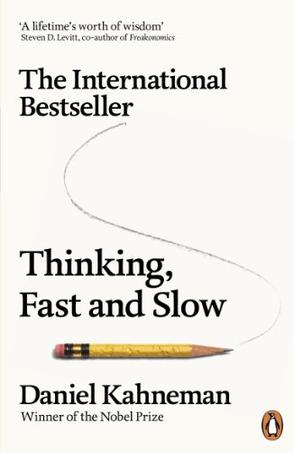
Thinking, Fast and Slow
The "New York Times" Bestseller, acclaimed by author such as Freakonomics co-author Steven D. Levitt, Black Swan author Nassim Nicholas Taleb and Nudge co-author Richard Thaler, "Thinking Fast and Slow" offers a whole new look at the way our minds work, and how we make decisions. Why is there more chance we'll believe something if it's in a bold type face? Why are judges more likely to deny parole before lunch? Why do we assume a good-looking person will be more competent? The answer lies in the two ways we make choices: fast, intuitive thinking, and slow, rational thinking. This book reveals how our minds are tripped up by error and prejudice (even when we think we are being logical), and gives you practical techniques for slower, smarter thinking. It will enable to you make better decisions at work, at home, and in everything you do. -
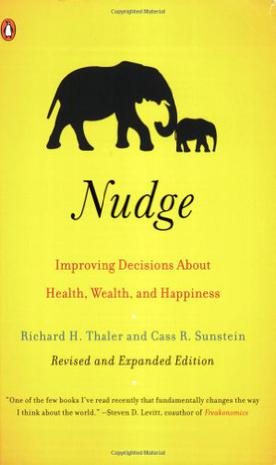
Nudge
在线阅读本书 Nudge is about choices—how we make them and how we can make better ones. Authors Richard H. Thaler and Cass R. Sunstein offer a new perspective on preventing the countless mistakes we make— including ill-advised personal investments, consumption of unhealthy foods, neglect of our natural resources, and other bad decisions. Citing decades of cutting-edge behavioral science research, they demonstrate that sensible “choice architecture”can successfully nudge people towards the best decisions without restricting their freedom of choice. S straightforward, informative, and entertaining, this is a must-read for anyone with interest in our individual and collective well-being. -
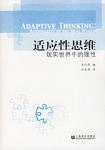
适应性思维
新思想来源于何处?什么是社会智能?无知如何转变为悟性?为什么社会科学家们会盲目地采用无头脑的统计学仪式?这本重要著作对这些问题做出了精辟回答。它将理性作为适应性思维进行重新思考,这种思维重在理解头脑是如何应付其周围环境的,包括自然的和社会的。总之,本书收集的论文发展了这样的思想:人类思维――从科学创造到理解艾滋病病毒检测结果意味着什么――部分地“发生”于头脑外部。 在本书中,吉仁泽教授提出并详细说明了探讨理性心理学问题的一项大胆而新颖的研究方案。生态理性、有限理性、社会理性等颇具创意的概念为研究人类理性提供了一种全新的理论框架。其独到的见解和论述将关于人类思维、社会智能、创造性及决策制定等问题的研究从一个虚无缥缈的梦幻世界一一在那里逻辑和概率规则统御着一切――迎回了启发式和社会动机发挥作用的现实世界中来。 《适应性思维》一本书适合对心理学、认知科学、统计学、经济学、社会学、哲学、人工智能和动物行为等研究领域感兴趣的广大读者阅读。它也为医生、艾滋病咨询师、刑法专家等实践工作者如何理解和交流不确定性和风险信息提供了可行的方案。 -
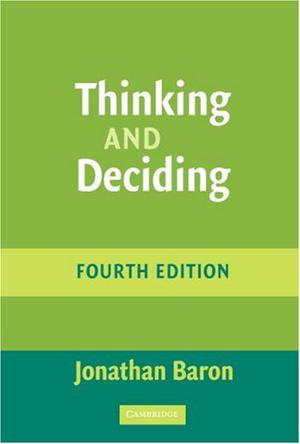
Thinking and Deciding
Beginning with its first edition and through subsequent editions, Thinking and Deciding has established itself as the required text and important reference work for students and scholars of human cognition and rationality. In this, the fourth edition, Jonathan Baron retains the comprehensive attention to the key questions addressed in the previous editions - How should we think? What, if anything, keeps us from thinking that way? How can we improve our thinking and decision making? - and his expanded treatment of topics such as risk, utilitarianism, Baye's theorem, and moral thinking. With the student in mind, the fourth edition emphasises the development of an understanding of the fundamental concepts in judgement and decision making. This book is essential reading for students and scholars in judgement and decision making and related fields, including psychology, economics, law, medicine, and business. -
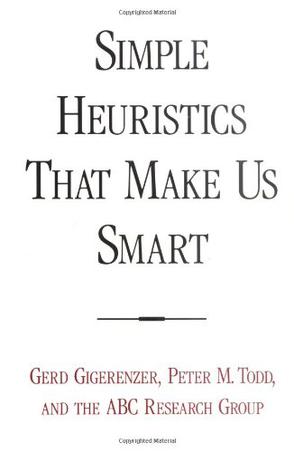
Simple Heuristics That Make Us Smart
Simple Heuristics That Make Us Smart invites readers to embark on a new journey into a land of rationality that differs from the familiar territory of cognitive science and economics. Traditional views of rationality tend to see decision makers as possessing superhuman powers of reason, limitless knowledge, and all of eternity in which to ponder choices. To understand decisions in the real world, we need a different, more psychologically plausible notion of rationality, and this book provides it. It is about fast and frugal heuristics--simple rules for making decisions when time is pressing and deep thought an unaffordable luxury. These heuristics can enable both living organisms and artificial systems to make smart choices, classifications, and predictions by employing bounded rationality. But when and how can such fast and frugal heuristics work? Can judgments based simply on one good reason be as accurate as those based on many reasons? Could less knowledge even lead to systematically better predictions than more knowledge? Simple Heuristics explores these questions, developing computational models of heuristics and testing them through experiments and analyses. It shows how fast and frugal heuristics can produce adaptive decisions in situations as varied as choosing a mate, dividing resources among offspring, predicting high school drop out rates, and playing the stock market. As an interdisciplinary work that is both useful and engaging, this book will appeal to a wide audience. It is ideal for researchers in cognitive psychology, evolutionary psychology, and cognitive science, as well as in economics and artificial intelligence. It will also inspire anyone interested in simply making good decisions. -
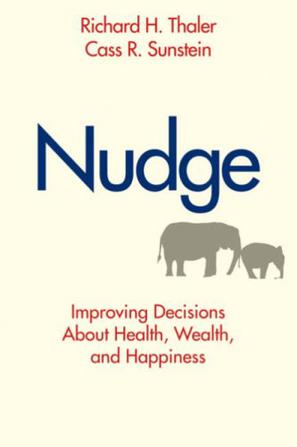
Nudge
Every day, we make decisions on topics ranging from personal investments to schools for our children to the meals we eat to the causes we champion. Unfortunately, we often choose poorly. The reason, the authors explain, is that, being human, we all are susceptible to various biases that can lead us to blunder. Our mistakes make us poorer and less healthy; we often make bad decisions involving education, personal finance, health care, mortgages and credit cards, the family, and even the planet itself. Thaler and Sunstein invite us to enter an alternative world, one that takes our humanness as a given. They show that by knowing how people think, we can design choice environments that make it easier for people to choose what is best for themselves, their families, and their society. Using colorful examples from the most important aspects of life, Thaler and Sunstein demonstrate how thoughtful choice architecture” can be established to nudge us in beneficial directions without restricting freedom of choice. Nudge offers a unique new takefrom neither the left nor the righton many hot-button issues, for individuals and governments alike. This is one of the most engaging and provocative books to come along in many years. (20080518)